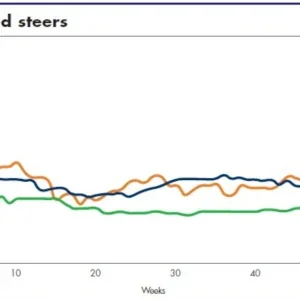THE KENYA TANNING industry faces total collapse owing to massive evasion of export duties and under-declaration of weight by hide and skin exporters, according to a just-published industry report.
The study stated the situation is exacerbated by a chaotic marketing system under which a clique of exporters, customs, and livestock development officials, collude to declare export prices far below local producer prices.
It is estimated that the government lost billions of shillings annually in export taxes.
The report detailed a widespread practice of evading export taxes, whereby major exporters pay local traders and suppliers in cash, making it difficult for tax authorities to determine true local prices. Thus traders are paid millions of shillings in cash every week. Until the 20% export duty was introduced last year, exporters would issue vouchers and receipts to local suppliers.
The latest Economic Survey of Kenya stated the value of hides and skins exported in 2002 was Sh445 million but industry analysts consider this a gross under-valuation. The report also stated that a random sampling of shipping documents also revealed that firms not licensed to export hides and skins, had exported hundreds of thousands of tonnes to Karachi, Hong Kong and Dubai.
The report revealed that some companies named on shipping documents as exporters are not known to buy from local traders, nor are they on the register of licensed exporters.
Additionally, shipping marks on the Bills of Lading resemble those of licensed exporters, which implied that some may be using other companies to export hides and skins and, therefore, misrepresenting export volumes.
Shipping papers also showed that some hides and skins were only identified as ‘East African Hides and Skins’, suggesting they were goods in transit originating in Uganda and Tanzania.
The extent of the massive duty evasion in the sector was confirmed recently when the Kenya Revenue Authority (KRA) introduced stiffer regulations for exporters, plus a requirement that all containers carrying hides and skins be physically weighed by customs officials. The KRA also ruled that all hides and skins entered for export be subjected to physical verification at the exporter’s premises before loading into containers.
Random samples of export documents showed that prior to the introduction of the regulations, the average declared weight of 1×20 container of wet-salted hides and skins was 9,600 tonnes, subsequently the weight increased to an average 20,000 tonnes.
Despite all the evidence of massive cheating, the customs authorities do not appear to be pursuing the culprits. A meeting attended by top KRA officials ended as inconclusively.
After what was described in a local newspaper as hours of wrangling, traders and exporters were asked to agree among themselves on a price and value to be applied in export duty calculation. Apparently this proved impossible with traders and exporters accusing the other of putting their own interests first.
Further discussions resulted in some provisional price guidelines. For wet-salted hides, the price was set at Sh40/kg, dried hides Sh85/kg, wet-salted goat skins at Shl.30/piece and wet-salted sheepskins Sh50/piece.
Kenya has a total of 13.6 million head of cattle, 6 million sheep and 8 million goats. Production of hides and skins is estimated at 1.5 million hides and 4.7 million skins.
Between 1990 and 1999, the number of tanneries had been reduced by half to eight. Julius Kipng’etich, managing director of the Investment Promotion Centre, said that tanners could not upgrade because they were not profitable enough and were short of raw material.
$1 = KSh78






